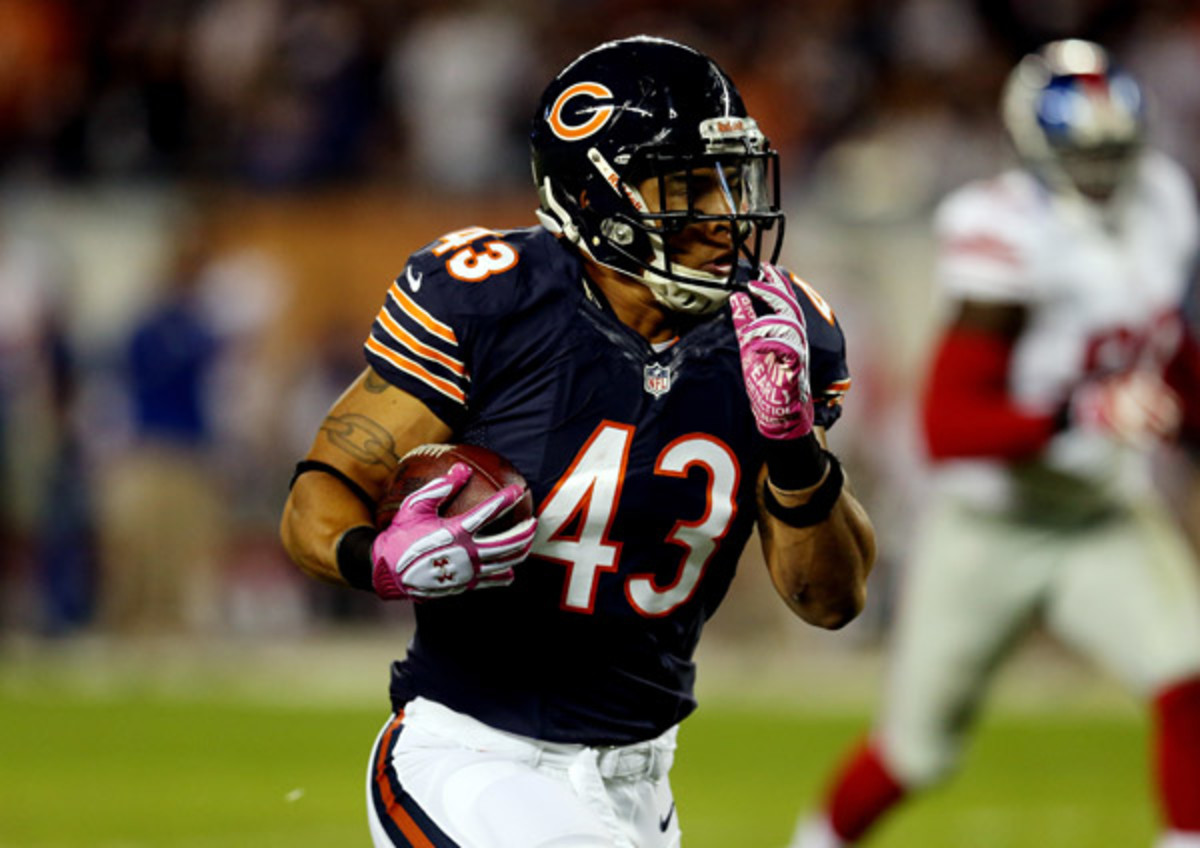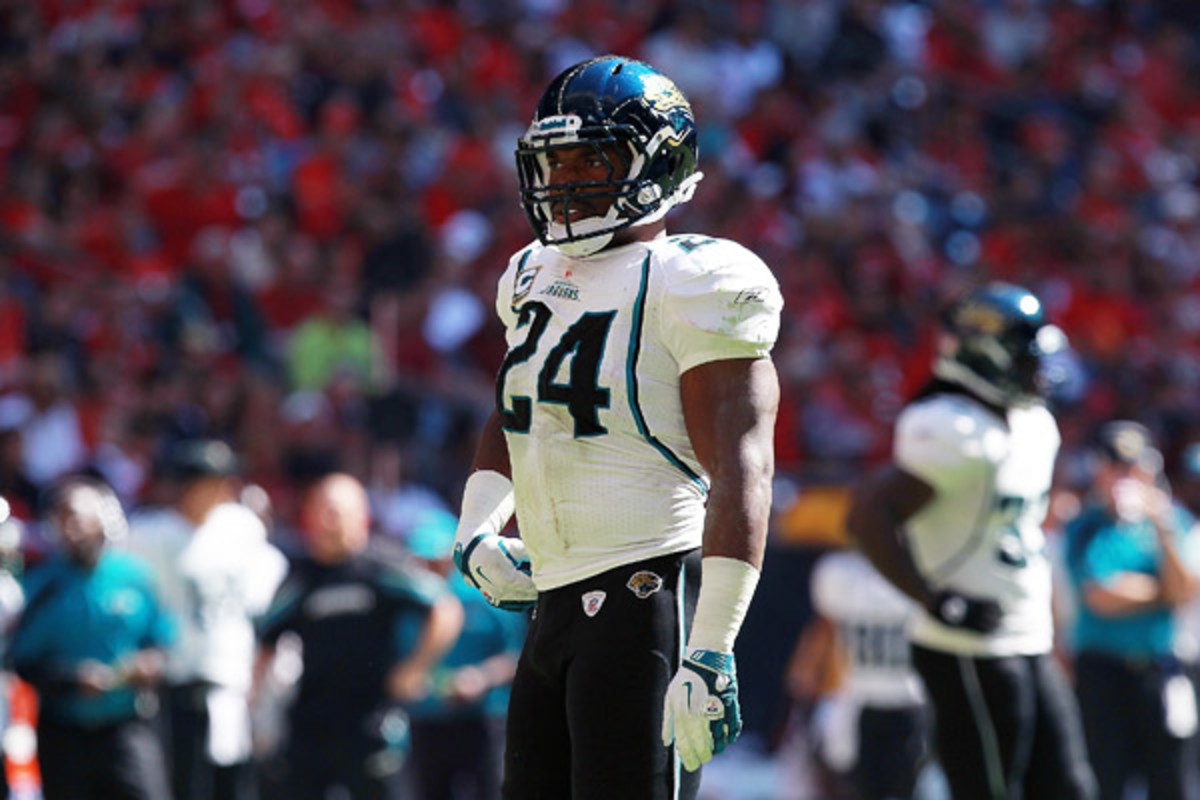Hey, Arian Foster—Where's the Beef? Going Vegan in the NFL

Months before training camp and weeks before OTAs even start, the rethinking has already begun, as the NFL’s best players mull over what they can do differently this offseason to gain an edge on the field next fall. This is when quarterbacks try new workouts in the weight room, offensive lineman tinker with their weight, and, rarely, players like Texans running back Arian Foster shake up the whole league by announcing they’ve done something totally different with their diet, like going vegan.
Foster dropped the bombshell on Twitter in July 2012 with one pithy chirp: “Officially a vegan now. We’ll see how far this goes.” The Twittersphere immediately exploded with criticism (“now that Arian Foster is a vegan I refuse to consider having him on my fantasy team in the future #hippies”), skepticism (“$43.5 million [Foster’s five-year contract] says you'll be eating meat by preseason”), some support (“vegan is easy. Don't let the haters get you down”), and much amazement that his dietary decision was creating so much hype (“Twitter abuzz about Arian Foster becoming a vegan.”)
That following season, though, the running back crushed doubts about his diet by leading the NFL in number of carries and rushing touchdowns. Yet by November 2012, Foster was also no longer 100 percent vegan, admitting he had added poultry back to his diet because, as he told the Houston Chronicle, “I just wanted a piece of chicken. It wasn't like temptation. I felt like I could use one.” But the Twittersphere once again blew up with commentary ranging from continued support—“yea, he’s not a vegan - but damn healthy nonetheless”—to vindication: “Arian Foster was vegan for like a month then he figured out he's playing a sport where you can die if you don't eat 8 steaks a week.”
Two years later, Foster still strives to eat vegan, tweeting words of encouragement to those who adopt the diet. But similar to his successful 2012 go, he added chicken and fish back to his diet during last year’s season, according to his team dietitian, Roberta Anding. “Knowing him, he’s just that person who’s always looking for, ‘How do I improve, how do I enhance my performance,’ and food is one of the options he’s chosen,” says Anding, who has worked with Foster since he joined the Texans in 2009. “But the volume of food you have to eat as a vegan is pretty large. If you need 5,000 calories a day, that’s a lot of plants.”
Choosing vegan: For some players, it’s about improving performance
Foster’s decision to return to eating meat parallels the fate of nearly all vegans in the league, a succinct list of fewer than a dozen players that has included retired Atlanta Falcons tight end Tony Gonzalez, former Tennessee Titans guard Deuce Lutui, and Chicago Bears fullback Tony Fiammetta, who was vegan for nine months before giving up the diet two years ago. “I just had cravings for meat, and I tried to fight them for so long, it didn’t make sense to fight them anymore,” Fiammetta says. “I felt good when I was on the diet, but it just became too much to keep it up.”

Today, the 6-foot, 250-pound fullback says he eats “mostly meat and vegetables,” with no gluten, sugar, dairy, or processed foods. But Fiammetta is quick to add that his recovery time was much better when he was full-blown vegan, saying, “If I got injured, I could get back faster.” For this reason, Fiammetta says he now chooses certain times during season to give up animal foods in a Lent-like sacrifice in the hope of improving his recovery. “If I don’t feel 100 percent, I’ll go through a vegan detox, eating vegan for a day or couple days. It gets me feeling good,” he says.
But the idea that a football player would choose to be a vegan for physical performance, not for ethics, the environment, overall health, or any of all the other reasons some adopt the diet, is new territory for most NFLers, even if it’s sound logic to Detroit running back Montell Owens, who was vegetarian and then vegan for two years before adding small amounts of meat back into his diet. “[Being vegan] improved my performance off and on the field,” says Owens, who played for the Jacksonville Jaguars for six seasons before being signed by the Lions. “Plant-based foods have no cholesterol, so I don’t have a cholesterol issue. My blood pressure is good, and the toxicity level in my body is good. You’re able to take more energy from plant-based sources than animal-based sources. The list goes on, and it translates to the field and how I recover.”
Playing defense: When the cons of veganism outweigh the pros
Despite his laundry list of physical improvements on a plant-based diet, Owens says there was an equally exhaustive list of impediments to being a strict vegan in the NFL. “Meat is powerful in America. Our culture has told us that meat in every meal is how you’re supposed to eat,” he says. In the end, Owens says the challenges of being strictly vegan were too great to continue with the diet he believes is the best one for his sport. “There were times when I was a vegan, and if there was a vegetarian restaurant or place that didn’t have vegan options, I would have a problem and get upset. Eventually I said, ‘You know what, I need something for me that’s easy and works for me.’”
In addition to the lack of convenience, there is also a social stigma to eating vegan in a sport renowned for having athletes who pound each other after pounding down fan favorites like ribs, burgers, beef chili, and pulled pork. “If I’m going to pick a lifestyle, being vegetarian is a whole lot better than relying on fried fast food, but somehow we accepted that as the way to go in football,” says Texans dietitian Anding. “Being vegan goes against all tradition and belief in the NFL. The carnivores never wanted [Arian Foster] to give up meat. Dietary preferences of football players are always polarizing.”

Being vegan in the NFL may be controversial, but Anding says it’s a healthy choice for football players if they can overcome the hurdles of sustaining the diet. “Today’s football players are really interested in taking care of themselves, extending their careers, recovering from injuries faster. And if you look at the benefits of a plant-based diet, you get a better complement of antioxidants and agents that are anti-inflammatory, because a lot of those come from plants,” says Anding. “The power is in the produce—you just need someone to plan your protein.”
But getting protein on a plant-based diet isn’t as difficult as Foster’s herd of carnivorous skeptics would like to think. “What I’ve heard here in Houston is that you can’t get enough protein if you’re vegetarian or vegan, but that’s not true. You can,” Anding says. “You probably need a sports dietitian to plan it for you, but gone are the days where you can only get enough protein by pounding back a 32-ounce steak.”
Lions fullback Owens says he gets fiery when the subject of plant protein comes up in conversation in Detroit’s cafeteria. “You’d be surprised how much protein is in a cup of peas, you’d be surprised if you were going to look up the protein in spinach,” he says he tells his teammates. “Rice and beans is a complete protein. There are so many combinations of plant foods you can eat that give you a complete protein.”
Fridge Raider: Giants First Baseman Brandon Belt
Meet the Lakers' Diet Doc: Cate Shanahan Shuns the Sugar
Vegan to Victory: WWE Superstar Daniel Bryan's Diet Drives His Success
More of these plant-based proteins are starting to show up in NFL cafeterias, too. According to Anding, Houston has added black-bean burgers, quinoa, and lentils to its standard menu alongside the usual beef burgers, fries, and eggs. “Players really like those black-bean burgers with salsa or guacamole,” she says. Fiammetta has also seen a nutritional shift in Chicago. “The quality of food has gone up and up and up,” he says. “So the consciousness about feeding the players is going in the right direction.”
The bottom line: Eat vegan or starve?
If consciousness is increasing and some, such as Anding, Fiammetta, and Owens, believe that eating vegan helps improve performance on the gridiron, why aren’t more players trading in their T-bones for tofu? Can NFL players really be vegan, too? According to Fiammetta, it’s possible, but extremely challenging. “I’m not surprised there aren’t more vegans,” he says. “When your job is on the line every year, you don’t want to make too many changes to your regime. You have to stay in your comfort zone and do what feels good.”
Anding is slightly more optimistic, but includes caveats. “I do think it is possible to be vegan as an NFL player, but it must also be convenient,” she says. “Players would need assistance from their team.”
As for Owens, the running back says he’s able to eat a plant-based diet during season only by relying on a company called Thrive Foods Direct, created by triathlete Brendan Brazier, which delivers prepackaged vegan meals to his doorstep. Even then, he says he still ends up eating animal products once a week out of necessity. “As an athlete, it’s extremely hard in America to be vegetarian or vegan and do the amount of traveling we do, be in some of the environments we’re in, and make convenient vegetarian and vegan choices,” Owens says. “When I was vegan, if I went to a wedding and they didn’t have a vegetarian option, I wasn’t going to eat—I was going to starve. Now I’ll have chicken or fish, but I won’t starve.”
